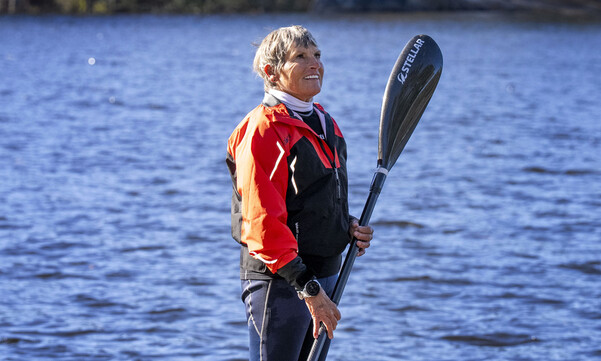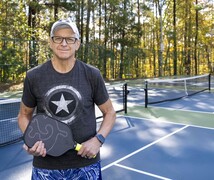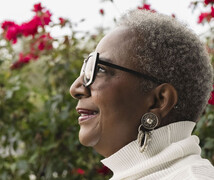After years of smoking, emphysema and chronic bronchitis, James Downey could barely walk more than a few laps around a track. He credits Duke’s pulmonary rehab program with helping him feel better, and being in the shape he’s in today.
Exercise Beneficial After COPD Diagnosis
Three days a week, 69-year-old James Downey of Rougemont hits the gym at Duke Cardiopulmonary Rehabilitation. He walks 1.5 miles around the track, rides the stationary bike; walks the stairs and works out his arms and legs.
That’s a major accomplishment for Downey, who was diagnosed 14 years ago with chronic obstructive pulmonary disease (COPD). The lung condition is caused by years of damage (typically from smoking), and is characterized by wheezing, coughing, extreme shortness of breath and frequent lung infections.
Downey was a smoker for 55 years, and developed the lung diseases - emphysema and chronic bronchitis – that comprise COPD. “After I got emphysema, I kept smoking but it got too hard, so I quit. I just made up my mind that it’s something I’ve got to do and I did it all on my own.”
Motivated to Stay Healthy
When Downey first started doing pulmonary rehabilitation, “I used to walk three or four laps and I would get out of breath,” he said. “Now I can do 20 laps without stopping. I look forward to it. I feel fresh inside after I go. It feels like a relief.”
Those positive feelings keep him going. “I would not be in the shape I’m in without rehab,” he said. “I motivate myself to get up and go because I know I need it.”
Support Makes the Difference
Downey looks to many for the knowledge, support and strength he needs to keep moving, despite the daily challenges of COPD.
His lung specialist, Kamran Mahmood, MD, helps him manage the debilitating symptoms. “Dr. Mahmood takes the time to explain everything I need to know about my condition,” Downey said. “If there’s something new comes around that he thinks is going to help me, he lets me know.”
The staff at the rehab center provides a supportive environment that makes him feel welcome and well cared for. “They are all good people and do whatever it takes to help you,” he says. “They ask how you are, how things are going at home. They pay attention. That means a lot.”
The combination of medical and community support fuels Downey’s determination to make the most of every day. “I have a lot of support from my family and my church,” he said. “I take it one day at a time and look to the Lord for help along the way to stay motivated, to keep exercising, and eat healthy.”





